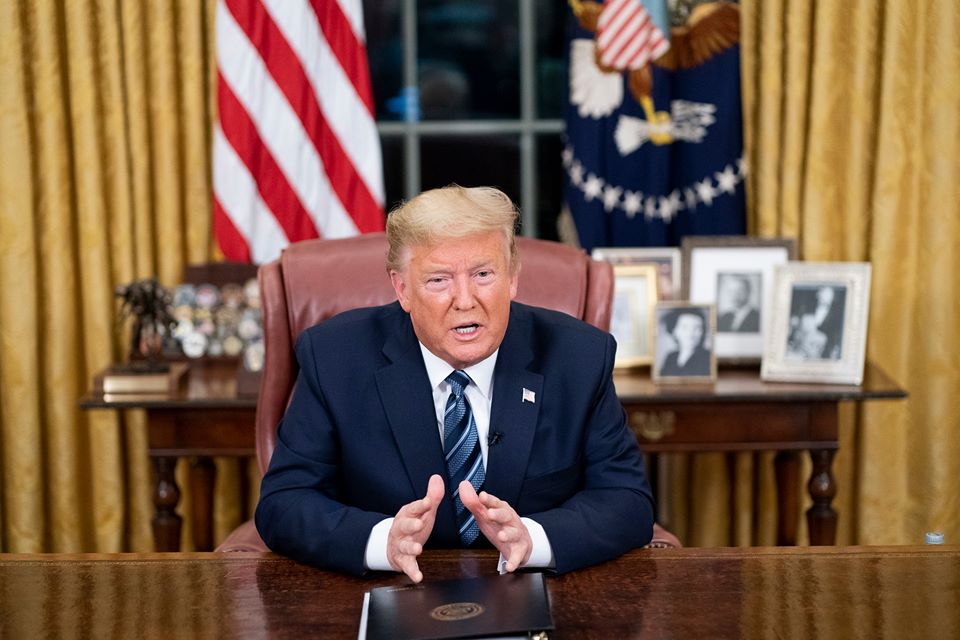
During a briefing at the White House, the US leader said that according to his information, the sides are close to reaching an agreement on oil production cuts. (File photo: The White House/Facebook)
WASHINGTON – US President Donald Trump said he had a “good talk” with the leaders of Russia and Saudi Arabia to discuss ways to stabilize the oil sectors of the three nations.
During a briefing at the White House, the US leader said that according to his information, the sides are close to reaching an agreement on oil production cuts.
“I just spoke with the president of Russia Vladimir Putin and the King of Saudi Arabia, King Salman, and we had a big talk as to oil production and OPEC (Organization of the Petroleum Exporting Countries) and making it so that our industry does well and the oil industry does better than it is doing right now,” Trump told reporters.
“The numbers are so low that there will be layoff all over the world and there will certainly be layoffs in this country. We don’t want that to happen,” he said. “We had a good talk and we’ll see what happens.”
“As you know, the OPEC met today, and I would say they are getting close to a deal. We’ll soon find out,” Trump added.
The plan on oil production cuts within the OPEC+ framework envisages that Russia and Saudi Arabia will reduce their oil production by 2.5 million barrels per day, from the current 11 million barrels to 8.5 million barrels per day in May-June, according to a draft agreement obtained by TASS.
During a video conference on Friday, OPEC+ nations discussed the situation on the oil market and proposed cuts. The previous OPEC+ agreement expired on March 31. After that, Russia and Saudi Arabia failed to agree on the terms of its extension.
The parties’ withdrawal from the agreement pushed OPEC+ to increase production, which coincided with a sharp decline in oil demand caused by the coronavirus pandemic. As a result, the oil price plummeted to USD22 per barrel which is the sharpest fall in 20 years.
In late March, the partners decided to resume consultations and to invite more oil producing countries to take part in the joint activities to balance the oil market. (TASS)






















